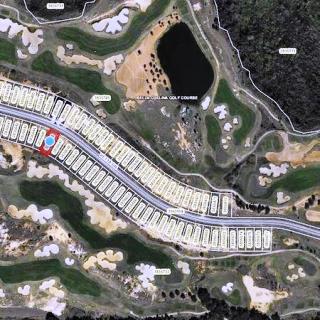|
Article
Courtesy of The Orlando Sentinel
By Mary
Shanklin Published
June 11, 2015
Bank of America donated a foreclosed lot in the Bella Collina
development to a nonprofit but it had more than $70,000 in property-association
debt on.
Rather than being an asset, though, the piece of dirt in the
Bella Collina country club near Montverde has become a liability. The property
is so buried in property-association debt from previous owners that The Housing
League LLC may have to give it back to developers and face losing tens of
thousands of dollars it spent to stay current on taxes and association dues.
"All we're asking to do is get back the
dollars we invested," said Jerry Flick, who oversees the League.
By forcing the nonprofit to repay previous owners' debt, the
developers of Bella Collina are "stripping away
affordable-housing dollars just so they can subsidize their
development."
Across the country, lenders have donated thousands of foreclosed
residential properties to the Housing League and other
nonprofits since the real estate market collapsed starting eight
years ago. Bank of America has donated more than 5,000
properties and about 100 of them went to The Housing League,
which is based in Vero Beach. The group sells the properties,
usually to struggling homebuyers, and reinvests profits in its
housing program.
Of the hundreds of donated properties The Housing League has
taken during the last four years, none have been as problematic
as the one at Bella Collina, Flick said. |
|
Bank of America donated a foreclosed lot in the Bella Collina
development to a nonprofit but it had more than $70,000 in
property-association debt on it.
|
Bank of America's donation of the debt-laden home site in Bella Collina is the
latest in a series of twists involving DCS Holdings, developers of the
1,800-acre golf-course projects on the banks of Lake Apopka. Randall Greene,
part of the development team, recently announced DCS Holdings would invest $10
million developing part of Eatonville but backed off when the town announced it
would seek bids. And DCS recently banned a real-estate agent from entering the
community after she had used the community's name in her marketing materials.
Since it bought the busted development from Bella Collina creator Bobby Ginn in
2012, DCS has filed dozens of lawsuits against property owners drowning in $8
million of unpaid property association fees. Some owners owed more than $100,000
in back association dues on just one lot and DCS charged 18-percent interest
rates — the maximum allowed — on unpaid association dues.
Courts granted the company ownership of many of the financially underwater
properties and DCS has now uses those newly acquired lots to help ramp up its
home-building program.
Flick said Bella Collina's developers are "equity skimmers" who bury property
owners in so many fees that the owners are forced to walk away, leaving DCS with
more land to sell. The nonprofit saddled its Bella Collina lot with a legal
requirement that only low- and moderate-income buyers could purchase it — an
unusual requirement in a community where house prices start at about $700,000.
Orlando attorney Andrew Fisher, who specializes in real estate and serves on
several nonprofit boards, said he often gets calls about donations of real
estate, primarily time-share units. Nonprofits, Fisher said, should calculate
all the expenses of keeping any donated property and weigh them against possible
revenues from selling. The donations might not pay off, he said, using the
example that the offer of a time share usually does not.
And before the groups take any donation, they should get a letter from the
property-owner association stating any fees owed on the property, Fisher added.
Flick said his housing group typically investigates properties before accepting
them as a donation.
The Housing League has little hope of profiting from its experience with Bella
Collina. The developer and owner agree the vacant property is worth about
$30,000 — a casualty of a market crash that leveled prices particularly at Bella
Collina, where speculating buyers drove up prices. Now, the lot is laden with
$76,000 to $136,000 in debt, including a mandatory $40,000 charge to join the
country club. The League could surrender its piece of Bella Collina, as many
other investors have, but it would never recoup the $25,000 it has spent on
property taxes and association fees during the last three years.
Greene, a principal with DCS, said he warned The Housing League against taking
the donated lot from Bank of America back in 2012.
"I told them, 'Don't do this. Bank of America has not paid the association fees
and you're stepping into a liability loop for what was previously owed,'" said
Greene, adding that the bank backed away from donating a similar lot after
realizing it carried debt.
Bank of America spokeswoman Jumana Bauwens said, "The bank paid the $16 that we
were told was due. We were not aware there was anything else."
Typically, she added, nonprofits thoroughly check out these donated properties
before taking ownership. She added that the lender would reach out to the League
and clarify who has responsibility for the unpaid fees. |
